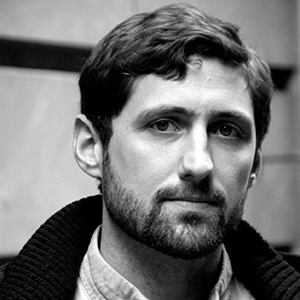Remarks on accepting the 2014 John Leonard Prize, established to recognize an outstanding first book in any genre.
I’d like to read a paragraph from one of John Leonard’s reviews. Well, it’s actually a sentence…a long sentence and one that resonated with me, from his review of Susan Sontag’s Regarding the Pain of Others. “So there is suffering,” he writes, “and there are cameras, and it is possible to worry about the motives of the men and women behind the cameras, whether one may be too arty, another a bit mercenary, a third a violence junkie, as it is possible to worry about whether our looking at the pictures they bring back from the wound is voyeuristic or pornographic; whether such witness, competing for notice among so many other clamors, seems more authentic the more it’s amateurish (accidental, like satellite surveillance); whether excess exposure to atrocity glossies dulls Jack and jades Jill; or whether. . . . But then again, maybe these worries are self-indulgent and beside the point, which should be to think our way past what happened to why.”
When I started writing my book, I knew many things about what had happened. Stories from veterans. Plenty of statistics. The history of operations conducted. Though of course, it wasn’t enough. And I started writing, and talking to friends both civilian and veteran, trying to dig past what happened, and toward something deeper. And one of the great honors of publishing this book has been to see my stories responded to not only in terms of whether they have artistic merit or not, not simply whether they deliver laughter, or tears, or horror, or satisfying epiphanic moments, but also whether they are useful for understanding our present moment—acts of interpretation that, even when not entirely approving of all the choices I made, further clarified for me what I was trying to express, and in what other directions we all might travel as readers. So it is a true honor to receive this award, named after one of the great critics, whose reviews helped us understand not only books but also ourselves, and did so with such delight in language, and with such love for the possibilities of literature.
I’d like to thank the members of the National Book Critics Circle. I’d like to thank all those who helped me along the way as I was writing the book, my first readers and editors and teachers. I’d like to thank my wife Jessica Alvarez. I’d like to thank Eric Simonoff, Andrea Walker, Liz Calamari, Scott Moyers, Yamil Anglada, my parents, my family, and everyone who picked up the book.


